Advertisement
Boston officials unveil new strategy for 'Mass. and Cass'
Resume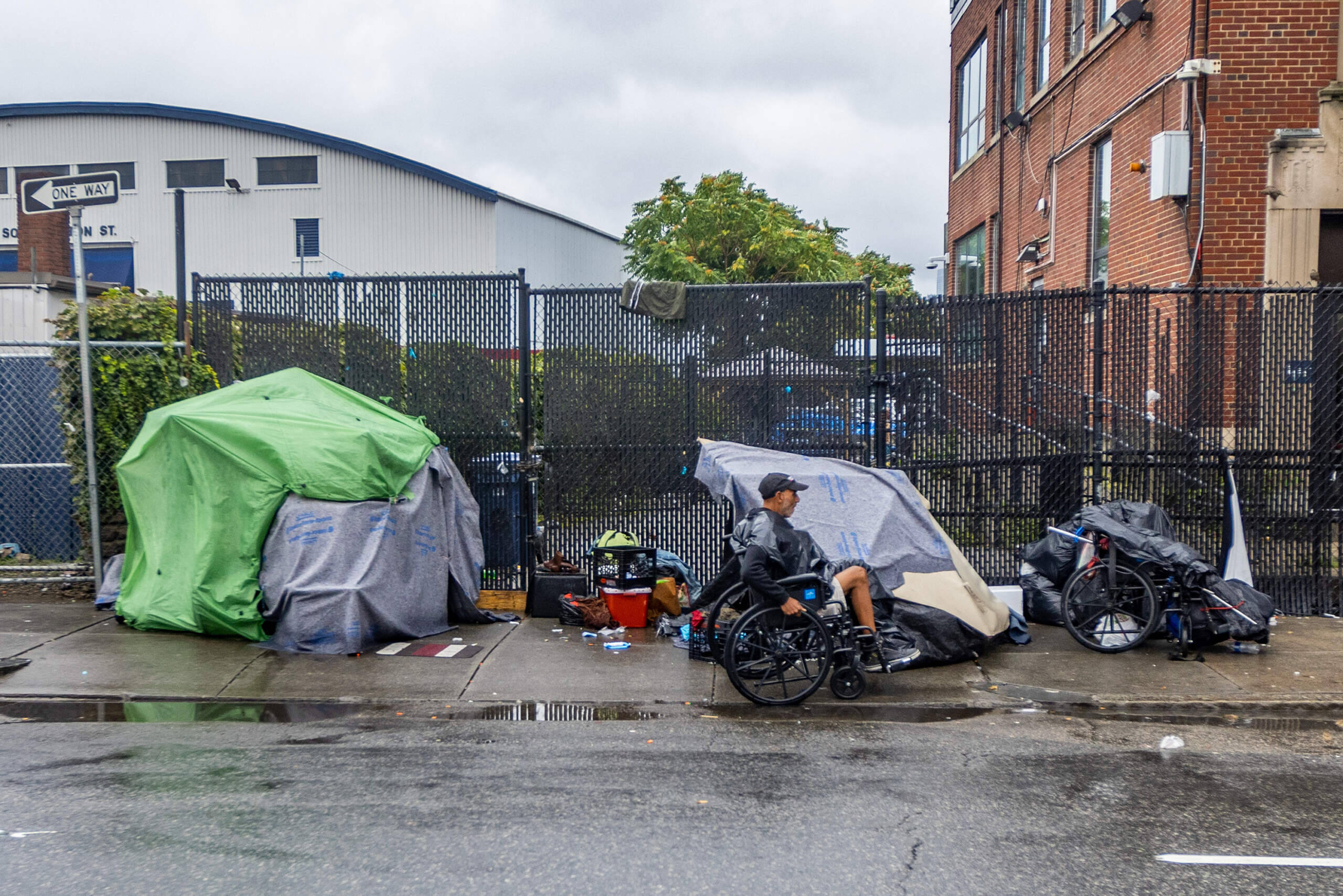
In the latest move to address rising violence and entrenched drug problems in the "Mass. and Cass" section of Boston, Mayor Michelle Wu said she will seek to give law enforcement more authority to remove tents, and the city will add new temporary shelter beds.
Appearing Friday with Boston Police Commissioner Michael Cox and Suffolk County District Attorney Kevin Hayden, Wu said she plans to file an ordinance with the city council next week that would make it easier for law enforcement officers to remove tents. She also proposed creating 30 temporary shelter beds at the Boston Public Health Commission offices on Massachusetts Avenue.
The ordinance will require City Council approval, and Wu expects it could take as long as two months for the changes to be implemented.
"I believe we're moving toward a very important phase change that will be a significant difference for the many communities, workers and residents at 'Mass. and Cass,' " Wu said. "But this is also not the solution to the opioid crisis or homelessness. We're going to keep working on all of those efforts together."
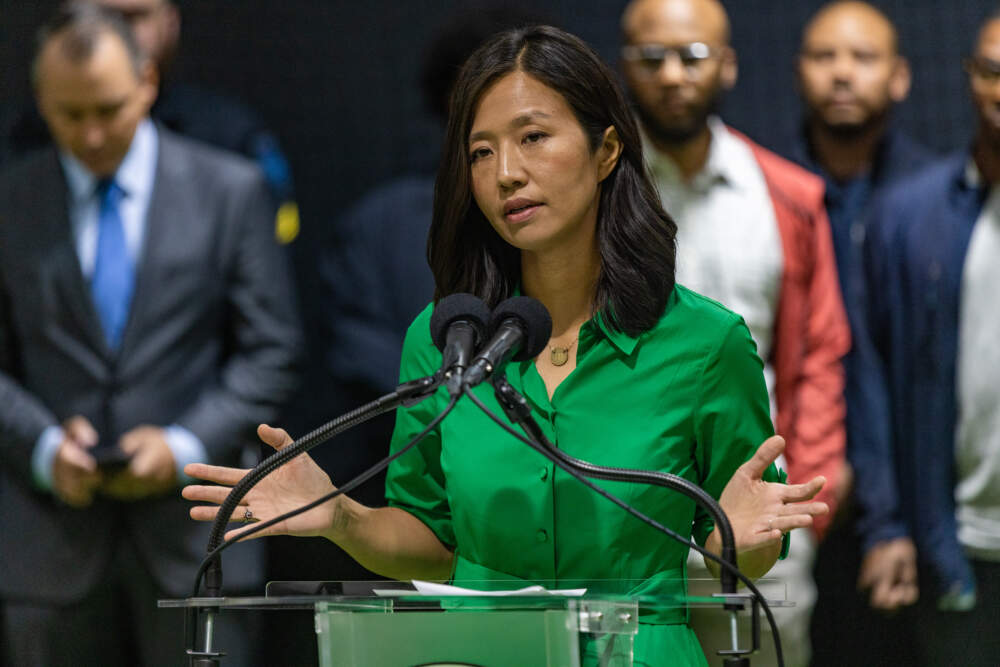
Wu said the city is "doubling down" on its approach to homelessness and addiction and making a change in strategy before cold weather comes, as well as to address public safety concerns. She said the city must take action to stem violence, trafficking and other criminal activity near the intersection of Massachusetts Avenue and Melnea Cass Boulevard, and she said eliminating temporary dwellings is a key part of that.
Wu's plan also involves closing the city's "Engagement Center" on Atkinson Street and moving its services to Boston Public Health Commission offices on Massachusetts Avenue. The center is currently a big draw to Atkinson Street, where people can get access to meals, showers, medical services and information about housing and other programs. Center officials say they serve between 200 to 300 people a day.
"We are taking such serious steps to curb the public safety concerns," Wu said. "That means that there will be some changes in the dynamic for people who have been used to gathering and congregating at 'Mass. and Cass.' And for those who are conducting criminal activity — that disruption is certainly warranted. We will not be tolerating illegal activity in any location of the city."
Wu said the new approach would not entail police "sweeps" like those of the past. "We want to be clear and acknowledge that sweeps have not been successful," Wu said. Instead, officers will patrol the area with clinicians, to help people find housing and other assistance before their tents are removed.
"We need to make a change," said Cox, the police commissioner. "We've seen double-digit increases in gun arrests, double-digit increases in assaults. And actually it's just making it almost unbearable for the people that work down there. It's clearly becoming more of a public safety issue."
But advocates question whether police can legally target people who are unhoused, and assert that their belongings must be protected by law. The American Civil Liberties Union of Massachusetts said it plans to review the new ordinance proposal once it is filed with the Boston City Council on Monday.
"As the Attorney General’s office made clear in its October 2022 ruling, cities and towns cannot target people for criminal law enforcement operations just because they are sleeping and taking shelter outside when there are no adequate alternatives," said Carol Rose, executive director of the ACLU of Massachusetts. Officials, Rose added, "should adhere to these fundamental principles while continuing to develop a robust, sustainable public health and housing response to the complex and longstanding crises unfolding in areas such as 'Mass. and Cass.' "
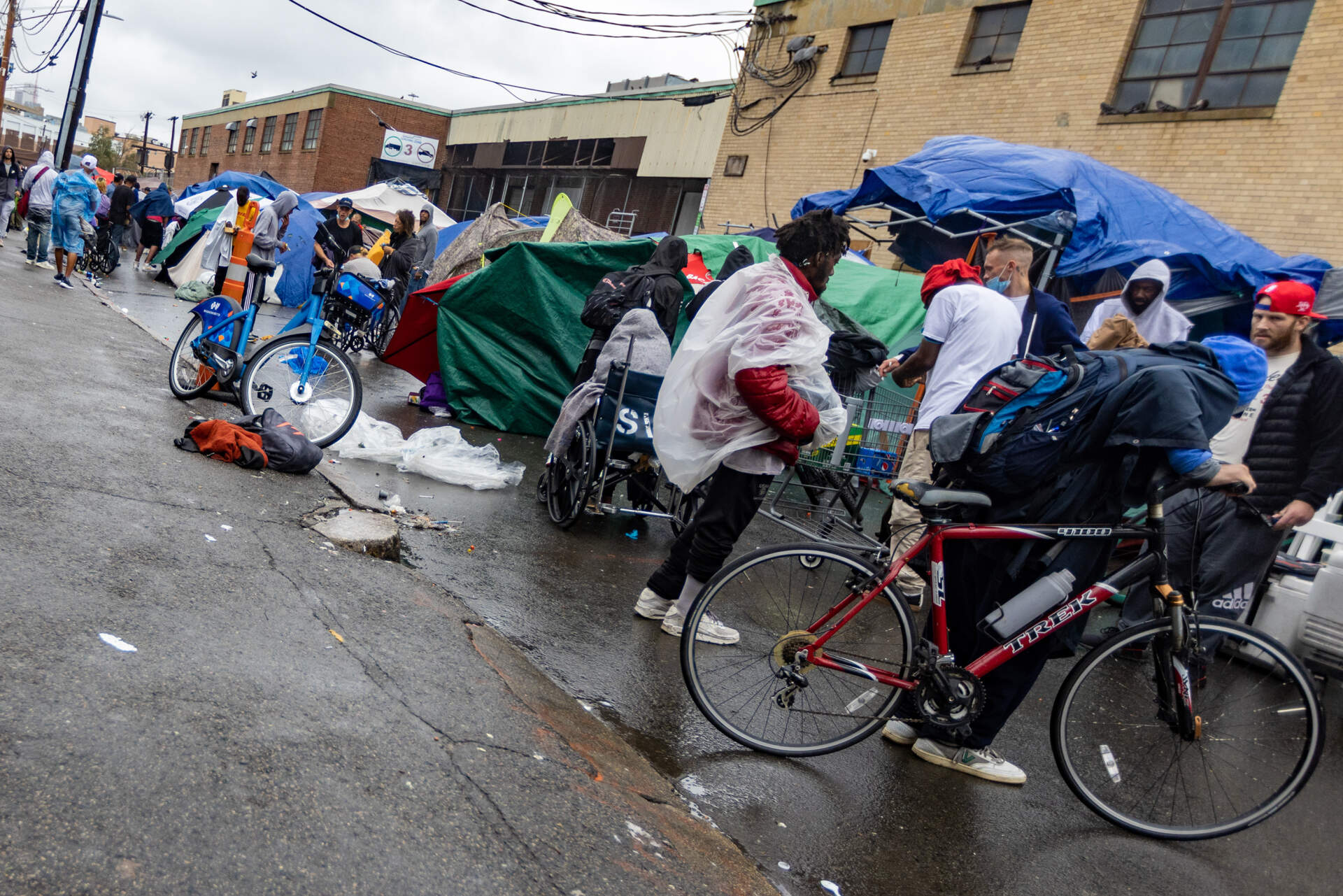
A group of residents from the South End, a bordering neighborhood that is among the city's wealthiest, has written to Boston city councilors criticizing the plan. They're concerned that the tents will move into the South End. They also oppose moving the Engagement Center's services and the 30 new temporary shelter beds to Massachusetts Avenue.
In its letter, the group urged councilors not to support "any new shelter or services in the South End," or in Roxbury, "including those purported to be 'temporary.' " They also asked city leaders not to agree to any tent removal ordinance that would make the South End and Roxbury "shoulder more of the Mass & Cass impact than we already do."
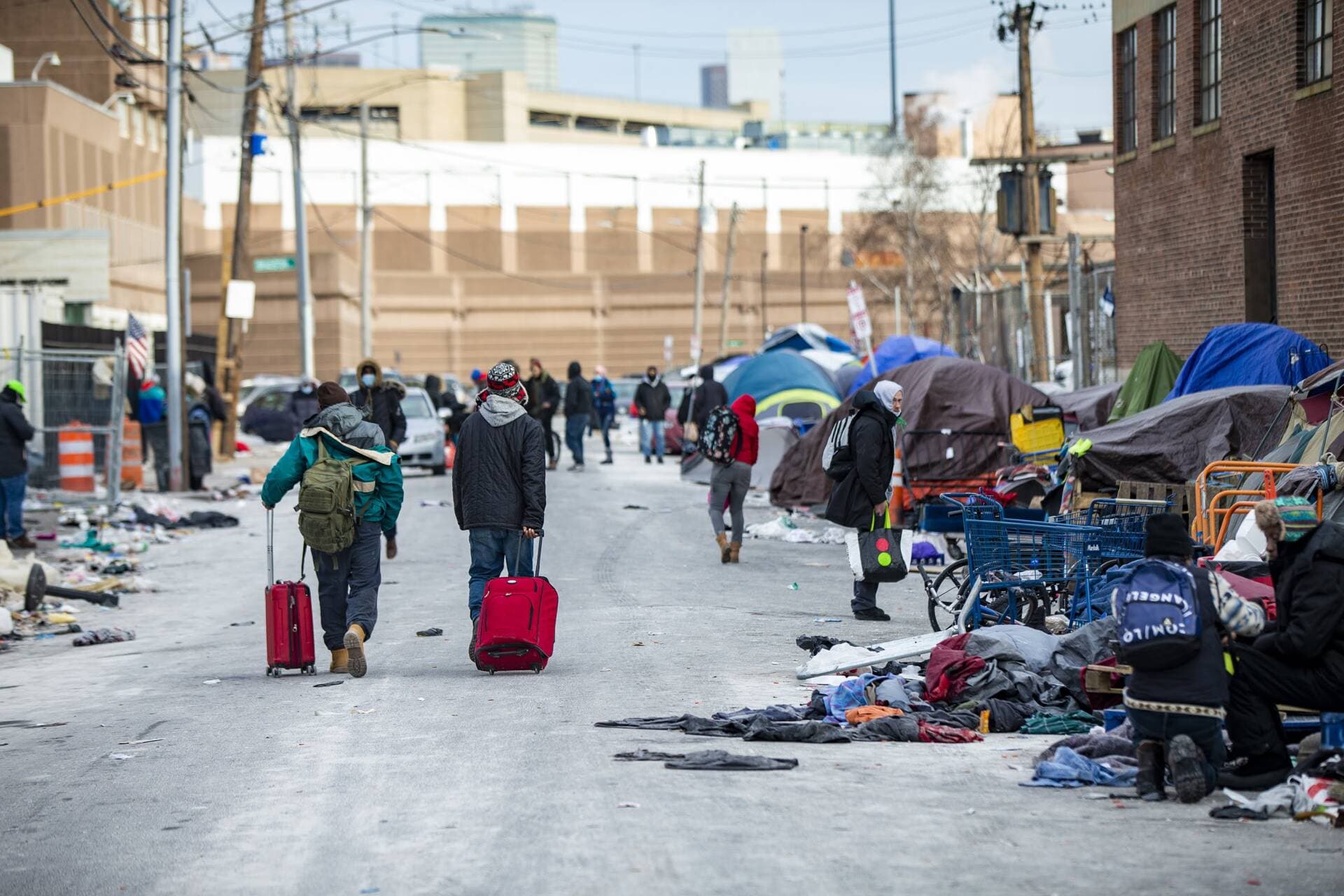
The area around "Mass. and Cass" has become the epicenter of the state's opioid crisis. On Friday, dozens of people were openly using drugs or obviously under their influence. City officials say more people visit the encampment than actually stay there overnight, and the tents have attracted drug dealers and human traffickers.
Many people go to Atkinson Street because there is an array of services for those struggling with mental health and addiction issues, including homeless shelters, harm reduction programs, methadone clinics and other programs for people seeking treatment for substance use disorders. The Boston Public Health Commission has contracted with a private security firm to patrol the area, and the local business community has hired crews to clean the streets three times a week.
In January 2022, shortly after taking office, Wu ordered city workers to clear tents from the area. But the tents have returned. City officials estimate there are about 200 people on the streets in the area — about the same number as before the tents were removed — and most are concentrated on a few blocks of Atkinson Street, which is closed off to traffic.
Earlier this summer, after several violent incidents including a triple stabbing, some agencies said they were temporarily withdrawing outreach workers from the area because of safety concerns. The agencies included the Boston Health Care for the Homeless Program, one of the city's most prominent social service nonprofits.
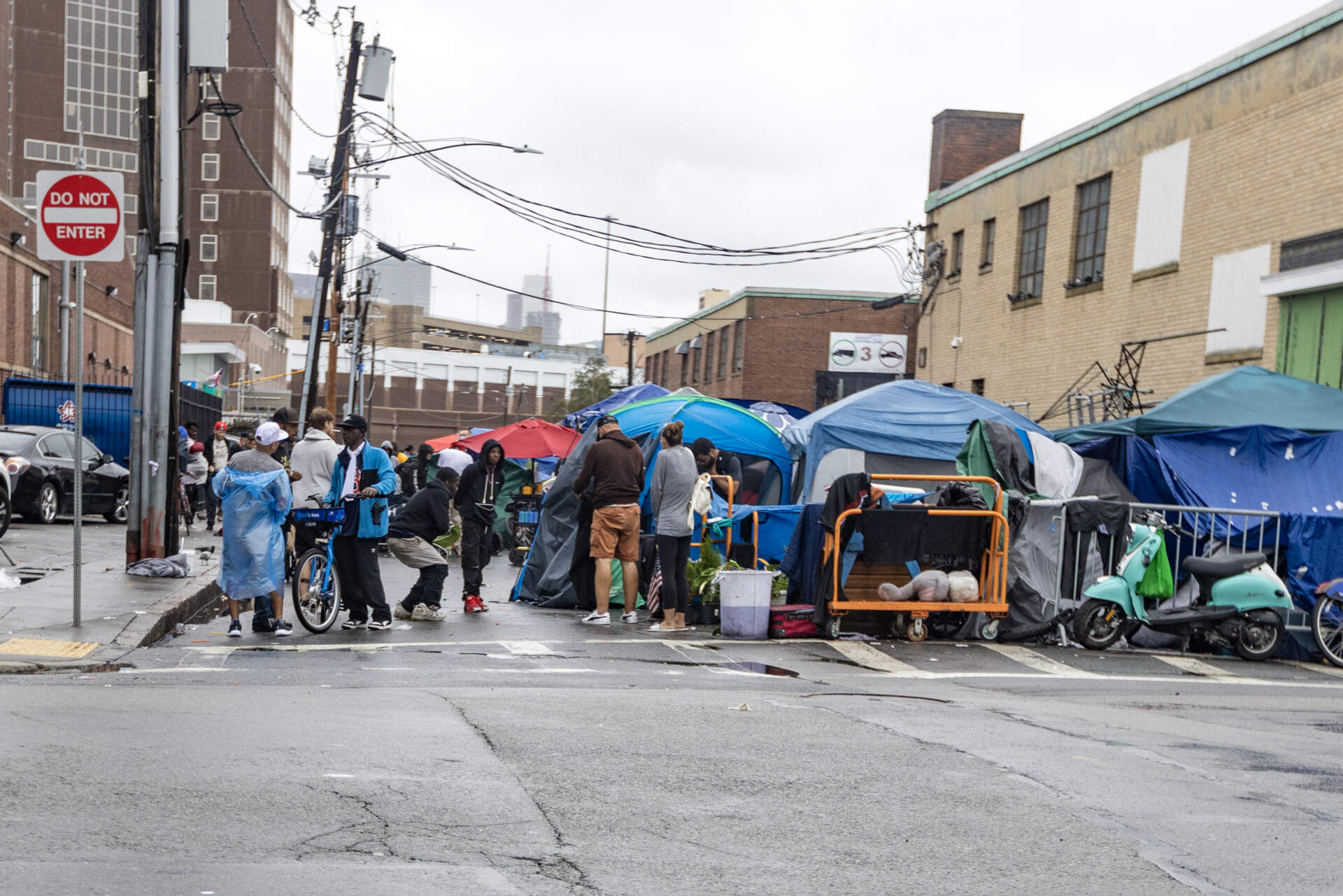
Wu's longer-term plan includes a multi-million-dollar bid to restore addiction and homeless services on Long Island, in Boston Harbor. Earlier this week, Wu and other city officials toured the island and its former social services buildings there. Those facilities had played a crucial role in caring for people until 2014, when the bridge to Long Island was deemed unsafe and abruptly shut down.
Wu said she envisions a "regional public health campus" on the island to provide services for those struggling with addiction, mental health issues and homelessness. But that vision is likely years away from becoming a reality: Wu expects the bridge to be rebuilt in four years. The city has budgeted $38 million to begin the building renovations and more than $80 million to rebuild the bridge.
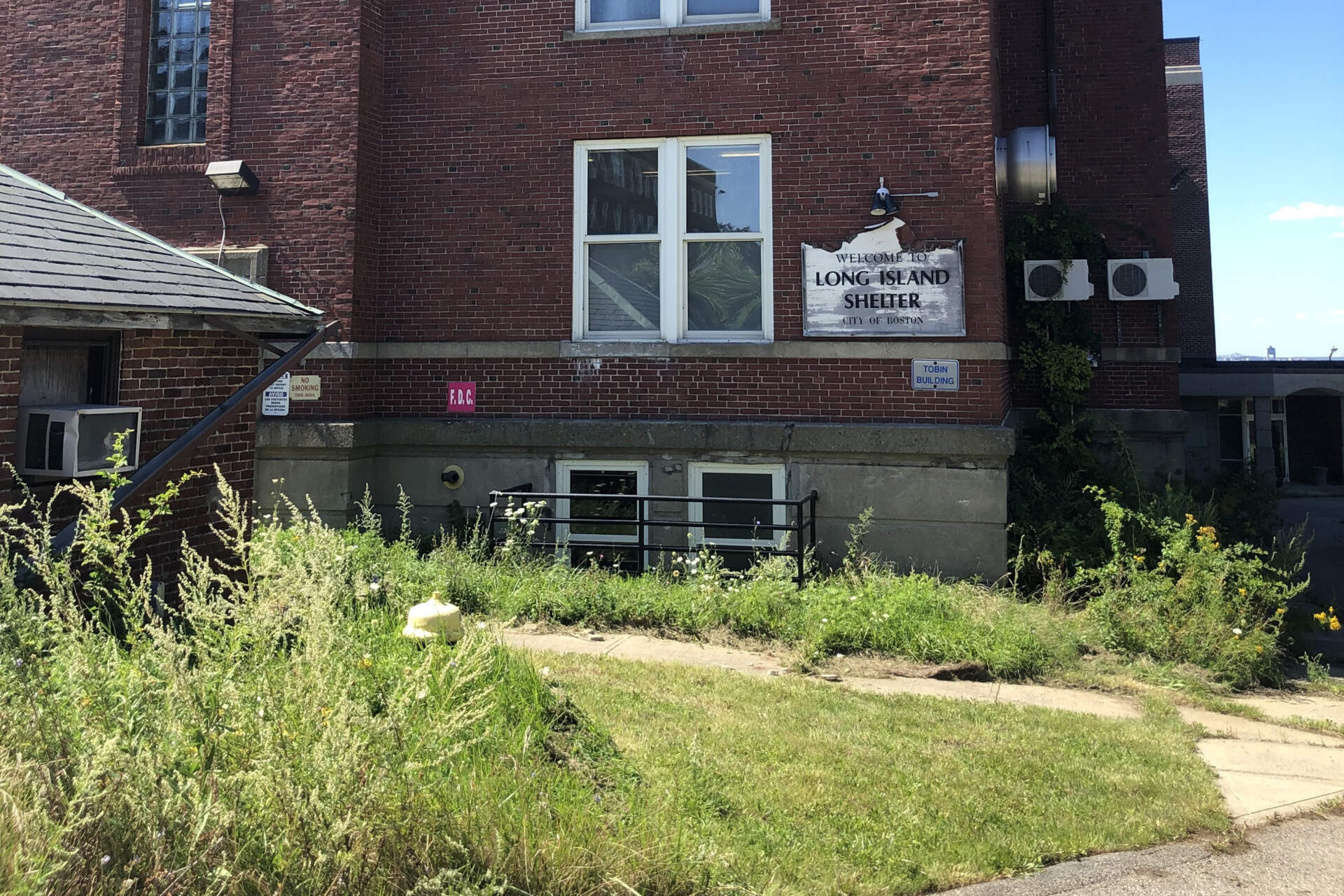
Last week, a group of business leaders called for quicker action to address the problems at "Mass. and Cass." The group outlined a $25 million plan for a "multi-stage short-term recovery campus" at Widett Circle, a 24-acre industrial area that was once used by food wholesalers. It was purchased by the MBTA for a rail yard but it is currently not in use.
On Atkinson Street on Friday, dozens of tents were crammed into an area cordoned off by metal barricades. Boston Public Health Commission security workers warned that it wasn't safe to walk through the street.
A few people wandering in the area said they were skeptical about the mayor's latest plan and believe if police start removing tents, temporary living structures will just go up somewhere else in the city. One man said he has housing but still frequently visits "Mass. and Cass," "because that's where my friends are."
